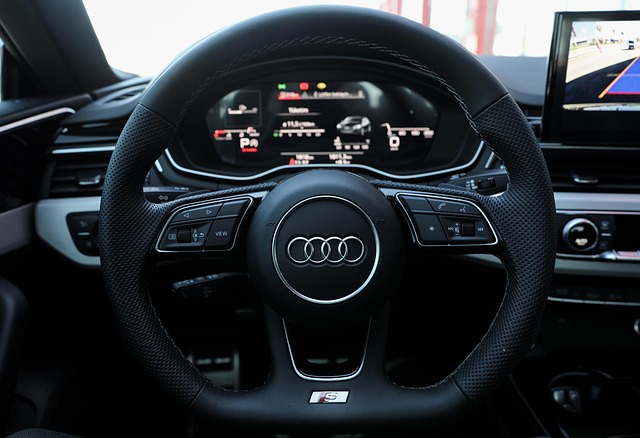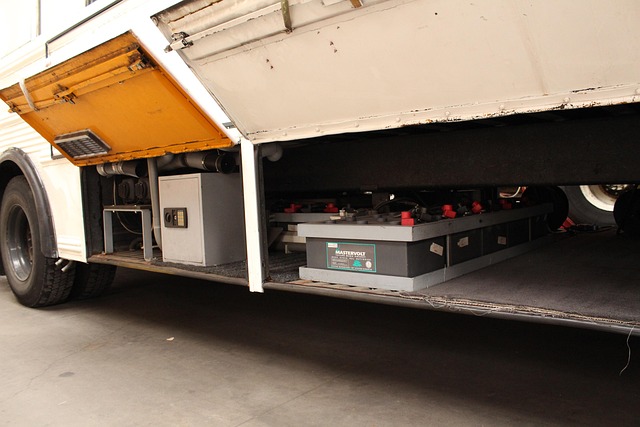Looking to register your car in California? This comprehensive guide walks you through every step, from understanding key requirements to completing the registration process. Learn about essential documents needed, including a valid VIN verifier, ensuring accuracy of your Vehicle Identification Number (VIN). Discover the convenience of online or in-person registration and understand the associated fees. Master the process effortlessly and hit the road with confidence!
- Understand California Car Registration Requirements
- Gather Necessary Documents for Car Registration
- Verify Vehicle Identification Number (VIN) Accuracy
- Complete Online or In-Person Registration Process
- Pay California Car Registration Fees
Understand California Car Registration Requirements

Before registering your car in California, it’s crucial to understand the state’s specific requirements for vehicle identification number (VIN) verification. The California Department of Motor Vehicles (DMV) mandates that all vehicles must undergo a valid VIN inspection to ensure they meet safety and environmental standards. This process involves checking the vehicle’s history, including any previous accidents or outstanding issues.
One convenient way to fulfill this requirement is through a mobile VIN inspection or verification service. These services utilize specialized tools to perform a comprehensive check of your car’s VIN online, often providing instant results. A mobile vin verifier can save you time and effort by conducting the necessary checks remotely, allowing you to focus on preparing other documents required for registration.
Gather Necessary Documents for Car Registration

Before you begin the registration process, it’s crucial to gather all the essential documents required by the California Department of Motor Vehicles (DMV). One vital piece of information is the Vehicle Identification Number (VIN) from your car. Use a VIN verifier to ensure accuracy; many online tools and mobile apps are available for a quick and convenient vin inspection. These services provide a detailed report, making it easier to locate and verify your vehicle’s details.
Additionally, you’ll need proof of ownership, typically in the form of a title document or a bill of sale, along with any outstanding loan documents if the car is financed. An up-to-date registration from the previous state of residence is also necessary, as well as valid identification like a driver’s license or passport. For a smoother process, consider arranging these documents in advance to avoid any delays during your visit to the DMV.
Verify Vehicle Identification Number (VIN) Accuracy

Before diving into the registration process, it’s crucial to ensure your vehicle’s Vehicle Identification Number (VIN) is accurate. This unique 17-character code is a vital part of your car’s identity and is used for various purposes, including history tracking and theft prevention. Verify the VIN by checking the vehicle’s documentation, such as the title or registration papers, which should match the one displayed on the dashboard.
For added peace of mind, consider utilizing a mobile VIN verification service to cross-check the number against national databases. This simple step can help ensure there are no discrepancies and that you’re starting the registration process with accurate information. Remember, an accurate VIN is essential for a smooth car registration in California or anywhere else.
Complete Online or In-Person Registration Process

In California, registering a car involves either completing the process online or in-person at a DMV field office. The online registration is often the preferred method due to its convenience and speed. To begin, visitors to the California DMV website can start the transaction by entering their vehicle information, including the Vehicle Identification Number (VIN), which acts as a unique identifier for each car. The VIN verifier, whether it’s done through the official channel or a mobile vin verification service, plays a crucial role in this initial step.
Once the VIN is verified, users can proceed with providing other essential details such as their personal information and payment for the registration fees. Alternatively, residents who opt for an in-person registration may need to bring along documents like proof of ownership, insurance, and identification. At the DMV, staff will guide them through the process, ensuring all necessary forms are accurately completed before processing the registration.
Pay California Car Registration Fees

After gathering all the necessary documents, it’s time to pay the California car registration fees. These fees cover various costs associated with registering your vehicle, including administrative charges and emissions inspections. The amount you pay will vary depending on factors like the type of vehicle, its age, and fuel efficiency. You can typically pay these fees online through the California Department of Motor Vehicles (DMV) website or in person at a local DMV office.
One convenient option available to California residents is the use of a mobile VIN verifier. This service allows you to complete a VIN inspection and verification process right from your smartphone, saving you time and effort. A mobile VIN verifier can be particularly useful if you’re busy or have difficulty accessing a physical DMV location. Ensure that the service provider is reputable and offers accurate results to avoid any potential issues with registration.
Registering a car in California involves understanding key requirements, gathering essential documents, verifying your vehicle’s VIN using a reliable VIN verifier, and completing the registration process either online or in-person. By adhering to these steps and ensuring all fees are paid, you’ll have a validly registered vehicle that complies with state regulations.
